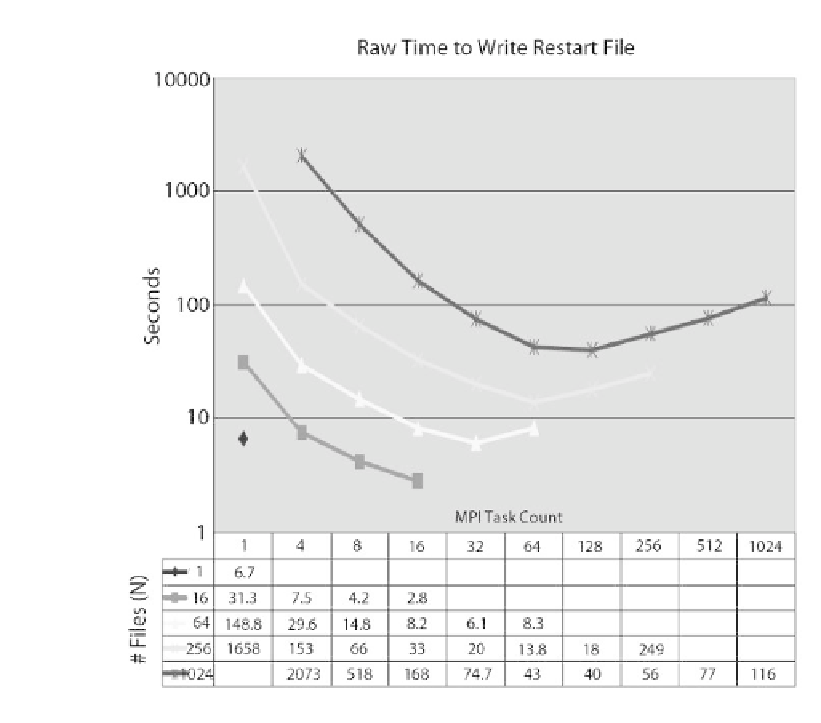Hardware Reference
In-Depth Information
FIGURE 21.3: Variation in ALE3D I/O performance as the number of file
parts is varied. [Image courtesy of Rob Neely (LLNL).]
even existence of data can vary dramatically among MPI tasks, this is
invaluable in simplifying I/O code development.
2. MIF-IO alleviates any need for global-to-local and local-to-global remap-
ping upon every exchange of data between the application and its file.
3. In-transit compression is easier to apply in a MIF-IO setting because
processors are freed from having to coordinate changes in data sizing as
it is moved to the file.
4. For MIF-IO, good performance demands very little in the way of ex-
tra/advanced features from the underlying I/O hardware and file sys-
tem. A relatively dumb file system can get it right and perform well.







